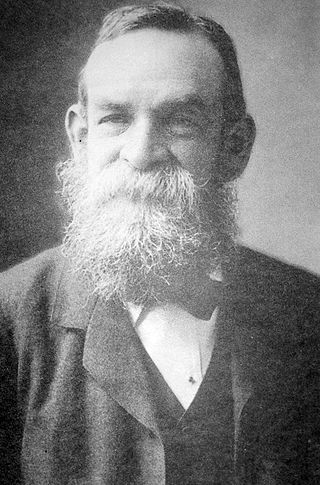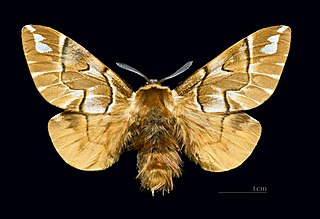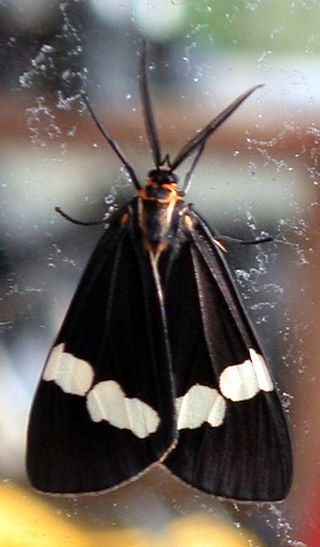
The skimmers or perchers and their relatives form the Libellulidae, the largest dragonfly family in the world. It is sometimes considered to contain the Corduliidae as the subfamily Corduliinae and the Macromiidae as the subfamily Macromiinae. Even if these are excluded, there remains a family of over 1000 species. With nearly worldwide distribution, these are almost certainly the most often seen of all dragonflies.

William Forsell Kirby was an English entomologist and folklorist.

Endromidae is a family of moths. It was long considered to be a monotypic family, containing just one species, the Kentish glory, Endromis versicolora, found throughout the Palaearctic region. The family now consists of several genera and about 30 species, all former members of the family Bombycidae.

Aemilia is a genus of tiger moths in the family Erebidae described by William Forsell Kirby in 1892. It was initially named Ameles, but this name properly refers to a praying mantis genus.

Apantesis is a genus of tiger moths in the family Erebidae first described by Francis Walker in 1855. They are found in North and Central America.

Belemnia is a genus of moths in the subfamily Arctiinae. The genus was erected by Francis Walker in 1854. Species are found in Central and South America.

Crocomela is a genus of moths in the subfamily Arctiinae. The genus was described by William Forsell Kirby in 1892.
Hypatia is a genus of moths in the subfamily Arctiinae. The genus was described by William Forsell Kirby in 1892.

Lophocampa is a genus of moths in the family Erebidae. The genus was erected by Thaddeus William Harris in 1841. It contains around 75 species.
Charitosemia is a genus of moths of the family Noctuidae.
Cuphanoa is a genus of moths in the family Noctuidae. The species of this genus are of dull color, and have frequent blossoming sallows in early spring. The proboscis and palpi are rather short, but the third joint of the latter, though short, is visible. The legs are short and very hairy. These moths are usually called "Quakers" by collectors. They bear a general resemblance to the Bombyces and were classed with them by some older writers. They are moths with stout, hairy bodies, and the abdomen, which extends a little beyond the hind wings, is obtuse in the male and more or less pointed in the female.

Hypopyra is a genus of moths in the family Erebidae.

Lobocleta is a genus of moths in the family Geometridae erected by Warren in 1906.

The Nyctemerina are a subtribe of woolly bear moths in the family Erebidae.

Nossa is a genus of moths in the family Epicopeiidae. The genus was described by William Forsell Kirby in 1892.
Neuroxena albofasciata is a moth of the subfamily Arctiinae first described by Herbert Druce in 1910. It is found in Cameroon.
Neuroxena auremaculatus is a moth of the subfamily Arctiinae. It is found in Madagascar.
Neuroxena fulleri is a moth of the subfamily Arctiinae first described by Herbert Druce in 1883. It is found in Cameroon, Equatorial Guinea, Gabon and Nigeria.
Neuroxena rectilineata is a moth of the subfamily Arctiinae first described by Hervé de Toulgoët in 1972. It is found on Mayotte in the Comoro Islands.
Hibrildes is a genus of moths in the family Eupterotidae.











